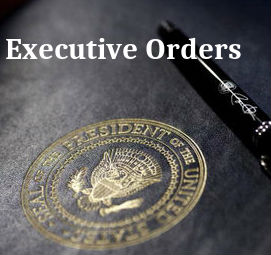
The Washington Post reports that a vote to sue President Obama for overreach of powers passed in the House. No Democrats supported the measure as well as 5 Republicans who also voted no.
Here’s where the mess begins. Most Americans are unaware of how the government actually works. Here’s all the nuances pertaining to Congressional and Executive power.
The Legislative branch, Congress, has the power to pass laws.
The Constitution does not grant specific permission for the Executive branch to issue executive orders.
Presidents have used Executive Orders to assist the officers of the Executive Branch (federal agencies) to carry out their duties.
In a court case in 1952, Youngstown Sheet & Tube Co. v. Sawyer, 343 US 579 the Supreme Court ruled that an Executive Order issued by President Truman, which placed all steel mills in the country under federal authority, was “not valid because it attempted to make law, rather than clarify or act to further a law put forth by the Congress or the Constitution”.
And more:
“The Youngstown decision was critical because it established a standard for the exercise of executive power. In his concurring opinion, Justice Robert H. Jackson described three different situations and three corresponding levels of presidential authority:
The president acts with the most authority when he has the “express or implied” consent of Congress
The president has uncertain authority in situations where Congress has not imposed its authority — either by inaction or indifference — and the president takes advantage of this “zone of twilight” to make an executive decision
The president acts with the least authority when he issues an executive order that is “incompatible” with the expressed or implied will of Congress. Such an act, wrote Justice Jackson, threatens the “equilibrium established by our Constitutional system” [source: Contrubis]”
Executive Orders are not meant to create new laws. Nevertheless, Presidents have, in recent years, pushed the envelope in this matter, using “the executive order as an increasingly powerful political weapon, pushing through programs and regulations — often controversial in nature — without Congressional or judicial oversight [source: Savage]. Executive orders can be overruled by the courts or nullified by legislators after the fact, but until then they carry the full weight of federal and state law [source: Contrubis]”
Obama’s response to the lawsuit vote was this:
“They’re going to sue me for taking executive actions to help people. So they’re mad I’m doing my job. And by the way, I’ve told them I’d be happy to do it with you. The only reason I’m doing it on my own is because you’re [Congress] not doing anything,”
One could argue that Obama’s response magnifies the problem. Obama’s job is not to take “executive actions to help people”. His job, per the Constitution, is to “take care that the laws be faithfully executed”. If Congress isn’t doing anything, that doesn’t mean the power to make laws, the Legislative Branch, is abrogated to the Executive Branch.
If Congress does not create and pass a particular law, it is because the people don’t will it. That is a free expression of Congress’s Constitutional power.
When the President says, “I have to act because Congress does not”, it can be argued that he violates the will of the people with a gross overreach of Executive authority.
Legal scholars have weighed in, suggesting that if Congress acts as one body with this lawsuit — in this case, the House passing the measure to sue — they will have decent Congressional standing from a legal perspective. Here’s more on how that works
Because this really has not been done before, it will likely take a long time to settle the matter. Stay tuned.